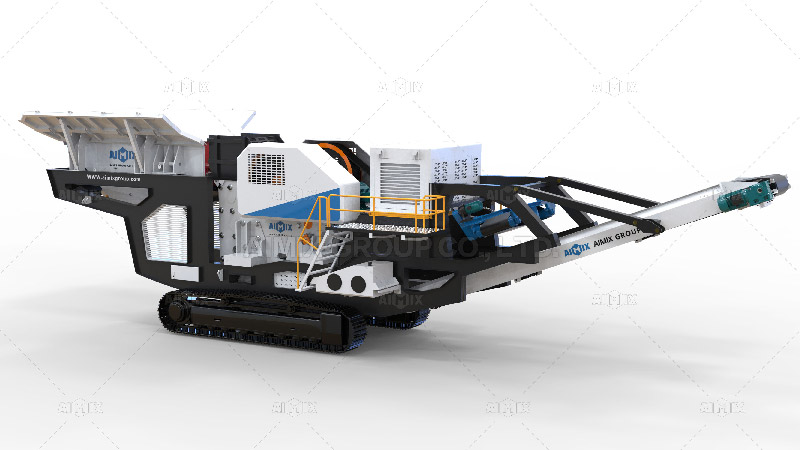When setting up an aggregate crushing plant, selecting the right primary crusher is a critical decision that will impact the entire operation's efficiency, productivity, and cost-effectiveness. The primary crusher serves as the first step in reducing raw materials, and choosing the wrong one can lead to higher operating costs, inefficiencies, and maintenance issues. This guide will help you understand the factors to consider when choosing the best primary crusher for your aggregate crushing plant or mobile stone crusher plant.
Understanding the Role of the Primary Crusher
The primary crusher's main role in an aggregate crushing plant(planta procesadora de agregados) is to reduce large, raw materials (like rocks and boulders) into smaller, more manageable sizes. This sets the stage for the subsequent stages of crushing and material handling. It's essential to choose a primary crusher that can handle the material efficiently, reduce the particle size to the appropriate level, and have the necessary durability to withstand high operational demands.
Types of Primary Crushers
There are several types of primary crushers available for aggregate crushing plants. Each type is designed for specific needs and conditions. The most common types include:
- Jaw Crushers: Jaw crushers are the most commonly used primary crushers, especially for hard and abrasive materials like granite and basalt. They operate by compressing the material between a fixed jaw and a moving jaw, which allows for the reduction of material size. They are well-suited for large feed sizes and can handle various types of material.
- Gyratory Crushers: These crushers are designed for high-capacity operations and are commonly used in large-scale aggregate plants. Gyratory crushers work by rotating a conical head inside a concave shell, creating a squeezing action that reduces material size. They are suitable for softer materials but can also handle hard rocks.
- Impact Crushers: Impact crushers use high-speed impact forces to break materials into smaller pieces. They are ideal for materials that are not as tough or hard, such as limestone and gypsum. They also produce cubical-shaped aggregates, which are preferred for certain applications like road construction.
- Hammer Crushers: Similar to impact crushers, hammer crushers use rotating hammers to crush materials. They are often used for medium to soft materials and are cost-effective in operations where large-scale crushing is required.
Factors to Consider When Choosing a Primary Crusher
Selecting the perfect primary crusher involves considering several key factors that affect the efficiency and longevity of your aggregate crushing plant. Here are some of the most important factors:
1. Material Characteristics
Understanding the properties of the material being processed is crucial when choosing a primary crusher. Hardness, abrasiveness, moisture content, and size of the material all influence which type of crusher will perform best. For example, jaw crushers excel at breaking down hard and abrasive materials, while impact crushers may be more efficient for softer materials like limestone.
2. Capacity Requirements
Capacity is a key consideration for any crushing operation. You need to match the primary crusher's capacity with the throughput required for the entire plant. Ensure that the crusher can handle the maximum feed size and deliver the necessary reduction rate. Overloading a crusher can lead to inefficient operation and increased wear and tear on the equipment.
3. Maintenance and Downtime
Choosing a crusher with low maintenance requirements can save your plant time and money in the long run. Consider factors such as the availability of spare parts, ease of servicing, and the expected lifespan of the machine. Crushers with fewer moving parts and simple designs tend to be more reliable and easier to maintain, reducing downtime and repair costs.
4. Cost-Effectiveness
While it may be tempting to choose a lower-cost crusher, it’s essential to consider the total cost of ownership, including maintenance, energy consumption, and the long-term operational costs. A higher upfront cost for a more durable or efficient crusher can ultimately be more cost-effective over the life of the plant, especially if it reduces downtime and maintenance costs.
5. Space and Layout Considerations
Space constraints and plant layout are important factors when selecting a primary crusher. For smaller aggregate crushing plants or locations with limited space, a mobile stone crusher plant(planta trituradora de piedra movil) might be the perfect solution. These plants can be moved to different locations as needed and often require less space for setup and operation. On the other hand, stationary plants require careful planning of space and equipment placement to optimize workflow.
Advantages of Mobile Stone Crusher Plants
For operations that require flexibility and mobility, a mobile stone crusher plant can be a great solution. These plants are equipped with various crushers, screens, and conveyors, allowing for easy transportation and setup in different locations. Here are a few advantages of mobile stone crushers:
- Flexibility: Mobile plants can be moved from site to site, allowing for a more flexible approach to project management. This is especially beneficial for large-scale projects that require multiple locations or for quarries with different material types.
- Reduced Setup Time: Mobile crushers are typically faster to set up than stationary plants, reducing overall project timelines and helping to meet deadlines.
- Cost Savings: Mobile plants can reduce the need for expensive transportation costs, as they eliminate the need to transport crushed materials to another location.
Conclusion
Choosing the perfect primary crusher for your aggregate crushing plant requires careful consideration of several factors, including the material to be processed, capacity requirements, maintenance costs, and space limitations. By understanding the various types of crushers and their advantages, you can select the machine that best meets the needs of your operation. For those requiring flexibility, a mobile stone crusher plant offers an excellent alternative with its mobility and quick setup times. Ultimately, selecting the right primary crusher will ensure that your aggregate crushing plant operates efficiently, safely, and cost-effectively.

Comments
No comments yet. Be the first to react!